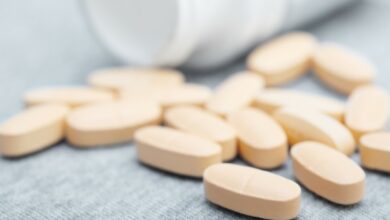
It has been a common phrase for as long as anyone can remember: An apple a day keeps the doctor away.
Now the same adage is being applied to tea. That beverage, too, new studies suggest, will keep you from seeing your physician less often.
Read More »More specifically: Just how much tea do you need to drink in order to improve your health?
The magic number
Now we know. The magic number—according to a new study by the Advancement of Food and Nutrition Science along with the Academy of Nutrition and Dietetics—is two cups a day.
The rewritten phrase for today then becomes: Two cups of tea a day keeps the doctor away.
Tea is known to be a healthy beverage, says Peter Goggi, president of the Tea Association of the U.S.A. These findings provide us with specific recommendations on how much tea we should drink in order to gain health benefits, he adds.
By drinking only two cups of true tea daily people will be able to improve their health, Goggi says, adding that science shows that tea is a signficant beverage if you want to live a healthy, long life.
The secret
The scientists tell us that the secret brewing in your tea lies in compounds known as flavan-3-ols. These are plant compounds that are found in a number of drinks and food such as berries, raisins, dark chocolate, and, yes, apples, too.
True teas, however, such as green and black tea, have been found to contain the highest concentrations of flavan-3-ols of all those beverages and foods at which the scientists looked.
So while the apple does a good job when it comes to averting diet-related disease, two cups of tea apparently does it better.
The closest to tea among a number of plants at which the researchers looked is a cup of blackberries, which contains 64 milligrams of flavan-3-ols. By contrast a cup of green tea contains 319 milligrams of the nutrient and a cup of brewed black tea contains 277 milligrams.
Improves your heart health
So much so, that we are assured that the extensive scientific tests conducted for this study have determined that consuming 400 to 600 milligrams of flavan-3-ols a day—the amount of the bioactive compound that is found in about two cups of black or green tea—improves your cholesterol, blood pressure, and lowers your blood sugar levels.
As a result, the compound cuts your risk of conditions that are often related to diet, such as stroke, heart disease, and type 2 diabetes. It also has been shown to aid in protecting our body’s cells from damage as we get older.
Control trials
The researchers made their findings after evaluating information from 157 random control trials as well as 15 accompanying studies.
They suggest that these new findings on the benefits of tea could affect dietary guidelines and thereby boost the health of Americans.
Asked about the significance of the guidelines, the lead resercher in the study, Dr. Kristi Crowe-White, said that teas are easily obtained and are affordable. They can have a positive effect on heart health. The guidelines, therefore, are a framework for wider dietary guidance. They also underline the strong impact that food has on a person’s health.
Leading cause of death
Heart disease is a leading cause of death across all population groups in the United States. It costs an estimated $229 billion a year. In addition, 96 million Americans are pre-diabetic and some 37.3 million suffer from diabetes, which is the seventh leading cause of death among Americans.
As we seek to prevent disease and improve our health through what we eat and drink, it is vital to know which beverages and foods contain the largest amount of nutrients to gain the most benefits, Crowe-White explains. Tea has been found to have the highest concentrations of flavan-3-ols of all foods and beverages that were evaluated by the scientists.
It is exciting to know that green and black tea, which so many people already enjoy, can provide us with the best amounts of flavan-3-ols, she adds.
She points out that these guidelines are for the consumption of about two eight-ounce cups of tea a day and are not recommendations for supplements that might contain flavan-3-ols.





